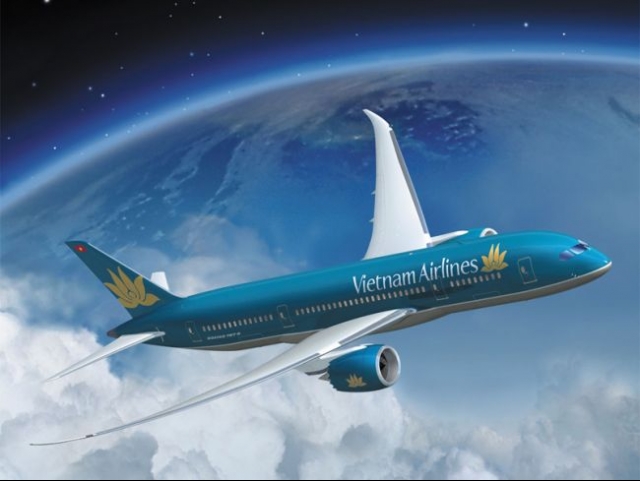Vietnam Airlines (VNA) will spend over VND2.11 trillion ($95.9 million) on purchasing ten Airbus A350-900XWB and 8 Boeing B787-9 aircraft this year.

In a report to be submitted to its annual shareholder meeting on June 20, the national flag carrier plans to invest in 100 projects worth over VND2.92 trillion ($132.7 million), with the purchase of the new aircraft representing 72 per cent of the funds.
Vietnam’s economy remains unpredictable due to foreign currency and fuel price fluctuations, its report noted, as well as fiercer competition.
In 2016, VNA’s revenue hit VND71.6 trillion, 8 per cent short of the target, partly due to a salary bill of VND2.7 trillion ($122.7 million) for 6,199 workers.
It will cooperate with low-cost carrier Jetstar Pacific to implement the VNA-JPA mutual brand strategy, strengthening competitiveness within the low-cost segment.
It projects consolidated revenue in 2017 to rise by 22.7 per cent against last year to VND87.9 trillion ($4 billion), while pre-tax profit will fall by 37 per cent to VND1.64 trillion ($72.7 million).
At an extra-ordinary shareholders meeting in February, Vietnam Airlines said it plans to sell and lease back four new aircraft it will receive from Dubai Aerospace Enterprise Ltd (DAE) this year. The carrier will earn a return of about $1 million from each aircraft in the deal.
At the upcoming meeting, VNA will ask its shareholders for approval to issue 191 million new shares to existing shareholders during the fourth quarter this year at a starting price of VND10,000 ($0.45), in order to increase its charter capital.
Mr. Le Hoang Dung, spokesman for Vietnam Airlines, told VET that it will focus on improving the quality of its services to provide customers with first-class international products and also invest in safety and technology.
“VNA continues to develop its flight and aircraft fleet, participate in bilateral and multilateral cooperation, and cooperate within the SkyTeam coalition to enhance its competitiveness and uniformity in international service quality standards,” said Mr. Dung. “We will provide more travel opportunities for customers as well as increase our ability to fill flights and increase efficiency.”
The national flag carrier has historically dominated both international and domestic markets but its hold on domestic flights has gradually loosened. Foreign ownership is limited to 30 per cent, meaning that it is difficult for overseas carriers to enter the market.
It has now begun to focus more attention on the low-cost market. Together with Australia’s Qantas it invested $139 million in Jetstar Pacific and has transferred some domestic routes to the carrier as part of the arrangement.
VN Economic Times